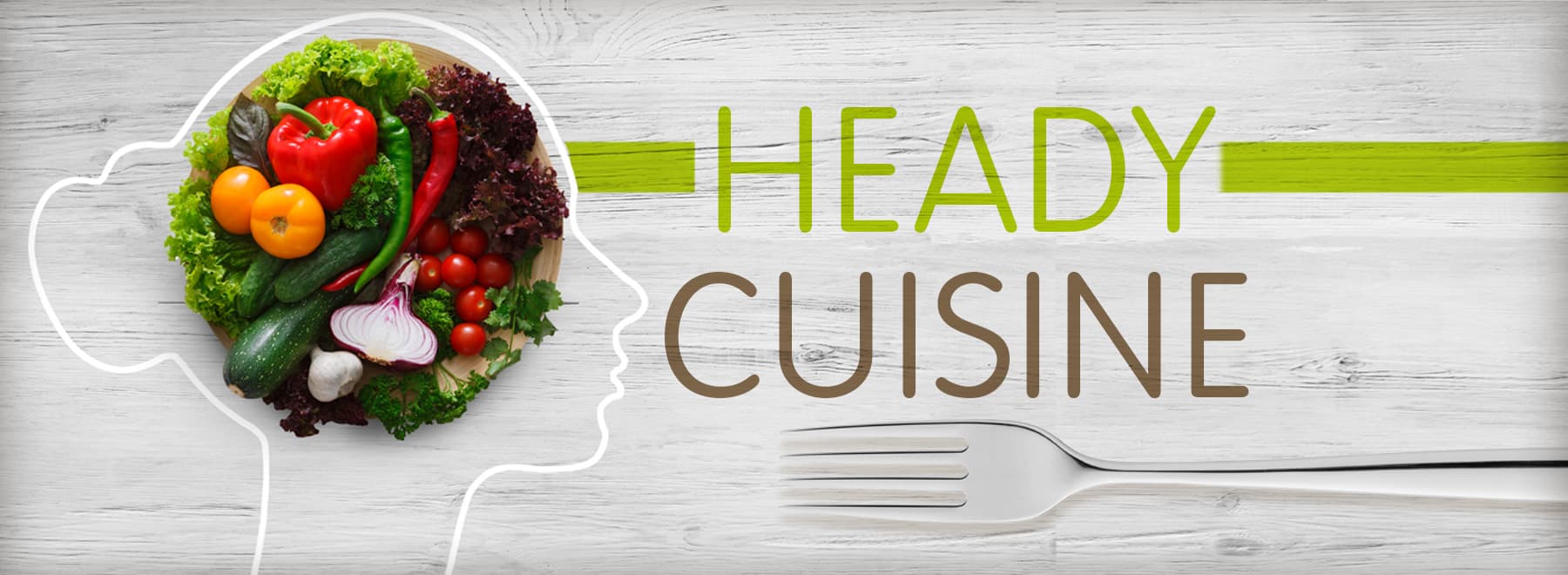MIND your menu, experts advise
Feed your head, starve your mental decline, at least two studies done this year suggest.
With one touting the Mediterranean diet and the other favoring moderate amounts of cheese, red wine and lamb, we have more possible proof that what we eat may slow a literal brain drain.

Still, there’s one eating scheme that appears to do both of those one better, said Dr. Debbie Minor, professor of medicine and associate professor of pharmacy at the University of Mississippi Medical Center.
The MIND diet combines the best of the Mediterranean and DASH dishes, as its unabbreviated name suggests: the Mediterranean-DASH Intervention for Neurodegenerative Delay.
“Even following it moderately is shown to be much more effective in reducing the risk of dementia compared to the DASH diet,” Minor said, referring to the Dietary Approaches to Stop Hypertension, a dining blueprint that originally targeted high blood pressure vs. medication.
Scrutiny of the MIND approach says it’s associated with decelerating cognitive decline, while toeing either the MIND, DASH or Mediterranean line may also lessen the likelihood of Alzheimer's disease, a type of dementia which has assaulted the memory, thinking and behavior of more than five million Americans, including some 55,000 Mississippians.
“The Mediterranean diet is a cultural and lifestyle approach,” Minor said. “The MIND diet focuses specifically on nutritious whole foods and nutrients, food groups that medical literature and data show to be good for the brain. You decide what you eat from those groups.”
But first, those new studies. With its accent on vegetables, whole grains, fish and olive oil, the Mediterranean diet can cut by about half your risk of cognitive impairment – if you’re a conscientious follower.
That finding comes from the National Eye Institute in Bethesda, Maryland, and its Division of Epidemiology and Clinical Applications, where researchers broke down data from two age-related eye disease studies.
In fact, it seems that eating foods that cut the risk of diabetes can do the same for dementia.

“That sounds extremely reasonable to me,” said Dr. Kevin Sullivan, an assistant professor of medicine in the Division of Geriatrics at UMMC and an epidemiologist who examines the causes and risk factors of aging. “The Mediterranean diet is a heart-healthy diet, as substantial evidence shows, which leads to less risk of diabetes. It’s good for your heart, so it’s good for your brain. And that should be helpful in preventing dementia.”
The more recent investigation, from Iowa State University, signals that, by responsibly consuming cheese, you may undermine cognitive hitches related to aging, while drinking red wine in particular lubricates your thinking. Eating lamb, but not other red meats, boosts brain power as well.
The Iowa State research used information collected from aging adults in the United Kingdom. Published in the November 2020 issue of the Journal of Alzheimer’s Disease, it’s billed as a “first-of-its-kind large-scale analysis that connects specific foods to later-in-life cognitive acuity.”
But Minor said other probes show the MIND design is superior to the Mediterranean and DASH diets in at least one significant way: You don’t have to follow it as closely to cut significantly your Alzheimer’s risk.
“One study showed that, if you stick to the MIND diet, you lower your risk of Alzheimer’s by 54 percent,” she said. “Even if you follow it part of the time, you cut it by 35 percent.
“If you observe the DASH or Mediterranean plan ‘moderately,’ there is almost no drop in Alzheimer’s risk.”
There are 10 food groups to keep in MIND: green leafy vegetables, other vegetables, nuts, beans, whole grains, fish, poultry, olive oil and wine (one glass per day) and berries.
“The MIND diet zeroes in on berries, but not other fruit,” Minor said, “and blueberries in particular, although some studies recommend cherries and cranberries. The MIND diet is easier to stick to and is shown to be much more effective than the DASH diet.
“Researchers studying people whose average age was in the 60s when they started the MIND plan found that, after six years, their cognitive function was equivalent to a person 7.5 years younger.”
As for the cheese-wine-lamb protocol, Minor is a bit skeptical about those pressed milk curds.
“Cheese is a funny thing. It’s been shown that eating cheese helps prevent diabetes. But most people overeat it, so you have the potential to increase weight and cholesterol, offsetting the benefits.
“Also, that study is based on a questionnaire and on the eating habits in the United Kingdom. They don’t eat like we do. They don’t eat the typical Western diet [high in red meat, sugar, fat, salt, refined grains, fried foods, etc.] But, if this had come out in the South, I would interpret it differently.”
Sullivan is even more cautious.
“I don’t think there is any secret ingredient in that cheese board or wine that’s going to make you any smarter,” he said. “I know it has been shown that red wine can be protective. But dietary guidelines strongly recommend that no one should start drinking alcohol based on perceived health benefits.
“What I would say, for now, is enjoy red wine or cheese in moderation because it tastes good, but as part of a diet that is balanced, not because you think those things would protect your health.”
Which brings us to the foods you should give a pass, at least most of the time.
“What you shouldn’t eat is almost the opposite of the Mediterranean diet,” Sullivan said. “Foods high in sugar, processed food, fattier food sources, such as red meat.
“You can enjoy all those things, but in moderation.”
To the list of dubious-to-bad edibles, Minor and others add salt, butter/margarine, fried or fast food, palm oil, pastries and coconut oil.
“If you want to put coconut oil on your body or in your hair, fine,” Minor said. “But don’t put it in your mouth.
“As for pastries and sweets, the problem is that we tend to overeat. And when it isn’t homemade, you have no idea how much of the bad stuff those treats contain – excess sugar, preservatives (often the bad fats) and probably not whole grains.”
Despite the potential of the MIND, Mediterranean and DASH diets on the dementia-Alzheimer’s front, their promise comes with some qualifications and caveats.
First, it’s not clear how long you need to embrace some of these regimens before they may start to work.
“Future studies will help clarify that,” Minor said.
Second, you should check with your physician before making any changes in diet, especially if you have a pre-existing medical condition, Minor said.
“These diets are also good for protecting against diabetes, high blood pressure and so forth, but certain foods can interfere with some medications.”
Third, realize that “these are observational studies,” Sullivan said. “Those who participate report what they are eating, and researchers track them over time. These are useful studies, but it’s difficult to determine, for certain, cause and effect.
“It’s hard to know whether this protection of cognitive function is caused by something else, such as socioeconomic status, or whether people who are better at adhering to a diet are more health-conscious in general. Stronger evidence would come from a true experiment, like a clinical trial where we assign what people are eating.”
Finally, how fast you can adopt any new diet may depend on your personality, Minor said.
“Some people can go all in immediately. For some, it’s very gradual. If you tell some people to do it all at once, they will say, ‘I can’t; I’ll fail.’
“And it’s true that food access is an issue for many of our patients. Fish and berries are expensive. But for protein, beans are an excellent, inexpensive option. And I can tell you how to cook red beans and rice cheap.”
The above article appears in CONSULT, UMMC’s monthly e-newsletter sharing news about cutting-edge clinical and health science education advances and innovative biomedical research at the Medical Center and giving you tips and suggestions on how you and the people you love can live a healthier life. Click here and enter your email address to receive CONSULT free of charge. You may cancel at any time.



